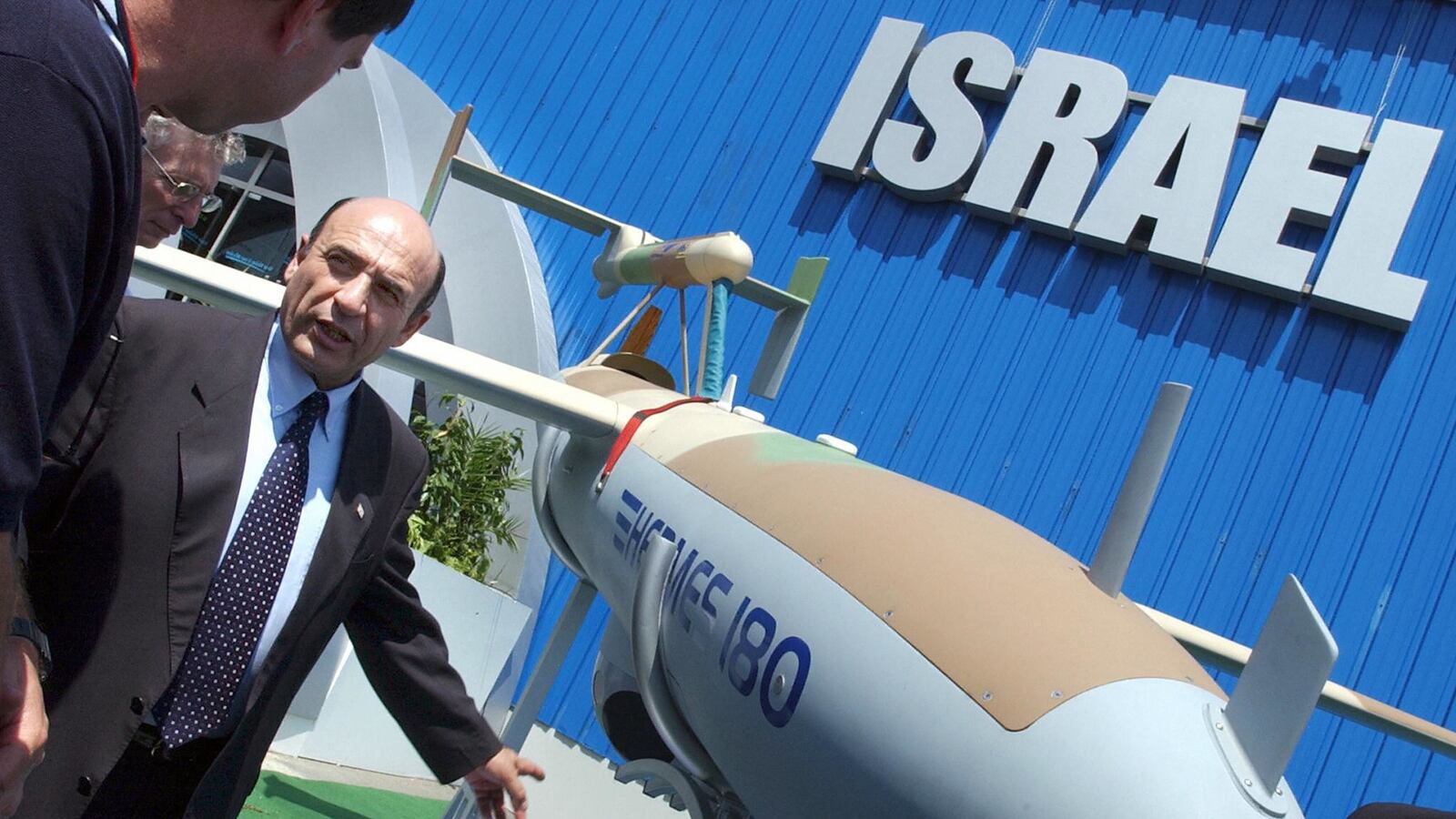The Paris Air Show opened on Monday and, as in years past, the Israeli booths were quite busy. Visitors, including many from countries with which Israel does not have diplomatic relations, came to see the Iron Dome launcher, the long-endurance Heron drone and a variety of sophisticated smart bombs and intelligence systems.

The widespread interest is not new. Over the past decade, Israel has established itself as one of the world’s leading arms exporters with sales circling the $7 billion mark annually. This is an impressive achievement for a country just 65 years old. In 2000, exports barely reached $2.5 billion. The sharp climb started around 2005 and sales have skyrocketed since.
But the 2013 show in Paris comes at a time of increasing concern for Israel as economic and regional changes raise the stakes for maintaining what has turned into a major engine of employment and innovation for the Israeli economy.
One major catalyst for these concerns is the upcoming withdrawal of American military forces from Afghanistan in 2014. Historically, the U.S. has been Israel’s primary consumer of military hardware, but that will take a hit with the U.S. winding down combat activity.
General global cuts to defense budgets are also having an impact and Israel’s industry leaders are also concerned with the possibility that a continued lack of progress on the Palestinian track could ultimately lead to calls for a boycott.
This has led to a new hope—that the recent reconciliation with Turkey might enable a renewal of sales to Israel’s former regional ally. Sales to Turkey used to be in the hundreds of millions annually. Massive deals to modernize combat aircraft, refurbish battle tanks, or supply drones and missiles were closed regularly and Turkish defense and military officials had an open door at the offices of Israeli defense contractors.
That came to an end in 2010, when an Israeli commando raid to stop an illegal flotilla to the Gaza Strip ended with nine dead Turkish passengers. While there was plenty of evidence showing that the passengers had violently attacked the Israeli commandos, Turkey decided to cut off all ties with Israel, including on a military level.
Turkey has a relatively large defense budget of $15 billion but is mostly dependant on imports for its advanced platforms. It used to buy those from Israel, but with the cut to ties, it has been working to develop its own indigenous capabilities, which would not only replace Israeli firms but also potentially compete with them on the global market.
Israel has proven itself as a world leader in a number of key fields: drones, missile defense, radars, intelligence systems, satellites and command-and-control systems. Last month, the business consulting group, Frost and Sullivan, reported that Israel had exported $4.6 billion worth of drones and accompanying systems between 2005 and 2012, making it the world’s leading exporter. The group’s prediction is that this trend will continue.
But the question most companies are grappling with now is how to maintain billions of dollars of sales with increasing competition and fewer customers. A sign of the economic concerns was felt in Paris, where the Defense Ministry decided to forego leasing a pavilion in favor of just having separate booths for the companies displaying their wares, saving about $1 million.
In Israel, while companies do business largely independently, they still require government approval for exports and in many cases deals are brokered on a government-to-government level. For that reason, the Defense Ministry department responsible for exports, known by its Hebrew acronym SIBAT, has been searching over the past two years to create new partnerships across the globe with a particular emphasis on South America and Asia.
In 2011, for example, SIBAT opened new offices in Mexico and Canada and it is actively working with a number of Israeli companies to establish joint ventures with companies in India and South Korea.
What will happen with Turkey is still unclear, though. While prime ministers Benjamin Netanyahu and Recep Tayyip Erdogan have agreed to put the 2010 Mavi Marmara flotilla incident behind them, the countries have yet to restore full diplomatic ties. Defense officials openly admit that the days when Israeli Air Force pilots trained regularly over Turkey are also not going to return so quickly.
But that does not mean that defense ties cannot at least exist quietly. A recent visit Mossad chief Tamir Pardo made to Ankara for talks with his Turkish counterpart—revealed in the Turkish press—could be a step in that direction. The issues of joint Israeli-Turkish interests that led to the U.S.-brokered reconciliation—Syria, Iran and Lebanon—are not going away any time soon.
In general, there are two schools of thought when it comes to renewing arms sales to Turkey, once one of Israel’s top customers.
On the one hand, there is the comparison to Iran, a country with which Israel had extensive defense and military ties up until the 1979 revolution. Basically, those opposed to renewing exports cite concern that Turkey will one day become a declared enemy of Israel and that the weapons it sells now will be used against it in the future.
The second school of thought rejects this possibility. Turkey is a member of NATO and a close ally of the United States, and despite its sometimes radical positions it still seems to covet membership in the European Union. These are all restraining factors and indicators that chances of Turkey becoming like Iran are slim.
These will not be easy decisions and how Israel responds to future Turkish requests to buy arms could have a major impact on the nature and stability of this still-fragile reconciliation.





